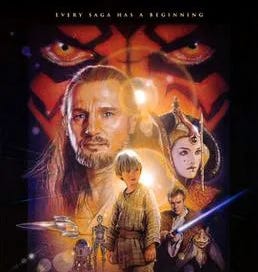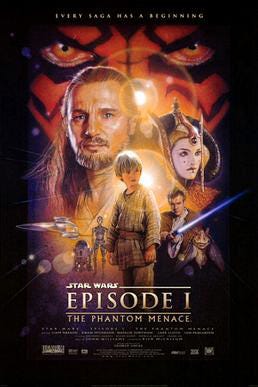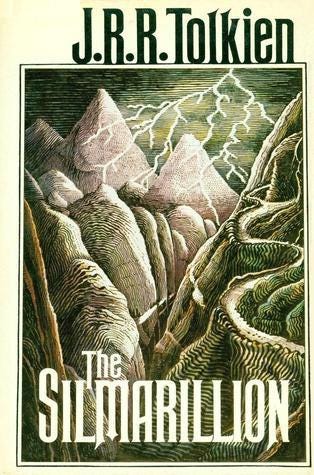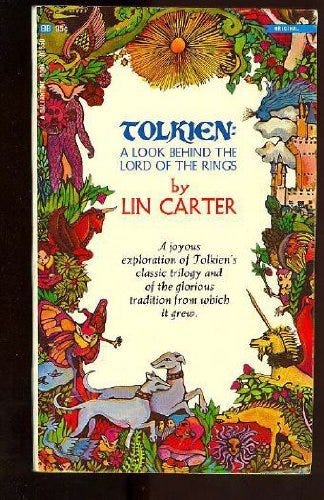I wasn't into Star Wars in the 90's, but I hear stories of fans' excitement over how George Lucas was finally releasing the prequel trilogy - and then their dismay when it turned out to be bad.
That's what I remembered the other month after I'd reread John Christopher's The White Mountains. The White Mountains is the first in a trilogy set in a world that's long-since been conquered by aliens. Our protagonists don't know much about how the aliens conquered the world long ago (the aliens having destroyed the records), but we get intriguing hints.
Long after writing that trilogy, Christopher returned to that world to write a prequel. I haven't reread the prequel as an adult... but I remember that even as a kid, I thought it rather anticlimactic. The aliens conquer the world mostly offstage, with their mind-control powers to which our protagonist is immune. There isn't any fight; just an escape. I remember that as a kid I thought it had good parts, but nothing more.
And now, having reread White Mountains as an adult, I'm sorry Christopher didn't follow up on the hints he'd dropped there instead. What I'm imagining now is far better than what I remember.
When I was chewing over that, I remembered a blog post I saw long ago. Our blogger was trying to reconstruct the Star Wars prequel trilogy based solely off the hints we get in the original trilogy. The story he gets is nothing like the actual prequel trilogy Lucas filmed long afterwards... but it's an interesting story in its own right! And plausibly one better!
So why are these prequels so disappointing?
Perhaps it's because of the loss of a sense of depth. I'm also remembering this other blog post by Tom Simon which argues that any telling of Silmarillion would have diminished the sense of grandeur we get from it in Lord of the Rings. He quotes Tolkien himself musing over how Silmarillion would inevitably be a let-down:
Part of the attraction of The L. R. is, I think, due to the glimpses of a large history in the background: an attraction like that of viewing far off an unvisited island, or seeing the towers of a distant city gleaming in a sunlit mist. To go there is to destroy the magic, unless new unattainable vistas are again revealed.
In other words, Simon argues that seeing the backstory told "destroys the magic" of imagining it in the distance. There's a lot to this. At the same time as we're invited into one story, we're imagining something more in the backstory. Obi-Wan Kenobi dropping hints about the past, or our protagonists in White Mountains gradually finding them, adds still another layer of intriguing mystery.
But - this's not inevitable in a prequel. Simon, in that very post, suggests some ways Tolkien could've done it - framing Silmarillion with Bilbo narrating.
I can think of another way: start the story around the breaking of the Siege of Angband, and have people be remembering the still-older days just like in Lord of the Rings. Lucas could've done the same with Star Wars had he wanted to. Of course, this would have been more complicated than the simple narrative. But it might have been better.
Or, perhaps it's inevitable.
I'm reminded of why cartoonist Bill Watterson never told us anything about "The Noodle Incident" except for that name. Anything else, he said, would be hard-pressed to match up to what readers have imagined.
There's a lot to that. When people imagine what might've happened before the story in vaguely-referenced concepts, some people will think up more imaginative things; many people will think up things they themselves would more appreciate; most people will think up things that won't have to bear the weight of an actual narrative. It's that way with "The Noodle Incident"; it'd be that way with alien invaders and Anakin Skywalker and Middle-Earth if their authors hadn't written the prequels.
But - sometimes it isn't better.
When I was a kid, my dad had a copy of Lin Carter’s analysis of Tolkien's works, written before Silmarillion was published. Based on the hints in Lord of the Rings, Carter reconstructs a synopsis of Silmarillion... which I found much blander than the actual Silmarillion. Carter had essentially blended the War of the Powers, the Flight of the Noldor, and the War of Wrath into one army of Elves leaving Valinor, while leaving out the actual main plot of Silmarillion!
Silmarillion isn't as good (as a book) as it could've been, and perhaps not as good as some readers might've imagined. But it's better than what Lin Carter imagined.
I don't think it's because of the sense of inevitability.
I've read some people arguing that prequels are inevitably disappointing because we know how they'll end up - we know, for instance, the Republic will fall to an Empire and Anakin will become Darth Vader. But this's the same argument as arguing stories make no sense if you have a prophecy of how things will turn out. It doesn't make sense there, and it doesn't make sense with prequels either.
The core of the problem is, I think, the same as with sequels. When an author writes a sequel or prequel, his fans will be eagerly awaiting it and wanting to satisfy their high expectations. But those high expectations are hard to satisfy, especially when readers are wanting something both like the first book and not exactly the same.
But with a prequel, this is even more difficult, because the author's not just trying to satisfy fans' expectations for a sequel but their expectations for what they've imagined about specific references. Their expectations are even higher and more precise - and thus harder to satisfy.
I think this can sometimes tie in with how authors sometimes see their own stories as different from how readers see them. With Tolkien, he'd started his stories of Middle-Earth as something very different from Lord of the Rings. So, Silmarillion wasn't and couldn't without extensive reworking be the same as Lord of the Rings.
Perhaps George Lucas had a similar problem without Tolkien's excuse. (He claimed to have planned out nine Star Wars films before he'd started filming the first one, but that's almost certainly false.) At least, he seemed to frame the Star Wars prequels as a slower and more epic tragedy than the faster triumphant story of the original trilogy.
Can prequels be done well? Sometimes. Brian Jacques did it decently enough in Redwall, where Book Two - set long before Book One - shows us the founding of the Abbey of Redwall where Book One (and most subsequent books) had been set. Even Silmarillion is very good in its own right, though not the same sort of epic novel as Lord of the Rings.
But they're a very difficult task, for many reasons.







I don't know, maybe this is heresy, but there are many ways in which I prefer the Silmarillion to LotR. To get more concrete I think the saddest scene in the Silmarillion (when Húrin Finds Morwen at Túrin’s Grave) is sadder than the saddest scene in LotR (I'm not even sure I have a nominee) and the most epic scene in the Silmarillion (there are many but perhaps Filgolfin's duel with Morgoth) is more deeply epic than the most epic scene in LotR (though this time it's much closer, Gandalf confronting the Lord of the Nazgul at the gates is fantastic, but I think the hopeless courage of the former puts it over the top).
Yes, LotR is better on some other dimensions, but I definitely don't think the Silmarillion should be considered a failed prequel. I think it's better than we have any right to expect in this fallen world.
The first Star Wars is a Civil War Wastern. Starts with the Trent Affair, Princess Leia (lightly frenched Lee) insulted by the Dark 'Vader from the Empire (dark invader from the empire north), blond innocent with servile unhumans who sure look like slaves meets lost general who sure looks like Marse Lee, so forth. Sure looks like a 1920s space serial lightly shifted from a 1920s unreconstructed reb view of the Civil War.
The second Star Wars was Leigh Bracket's screenplay. Everyone is more grownup, the good guys are revealed as hiding Luke's fatherhood, incestuous attraction, the bad guys win this one.
The third Star Wars tied it up, sort of, Muppets fight Nazi, force powers don't beat a gangster effortlessly, its complicated, but still big explosions fix the problem.
Well, prequels. Where do you go from here? Children's stories. Excellent filmatography. I don't say I could have done better. I'd have stuffed Brian Daley and Alan Dean Foster into the camera. Spinning my wheels, but they were good writers.